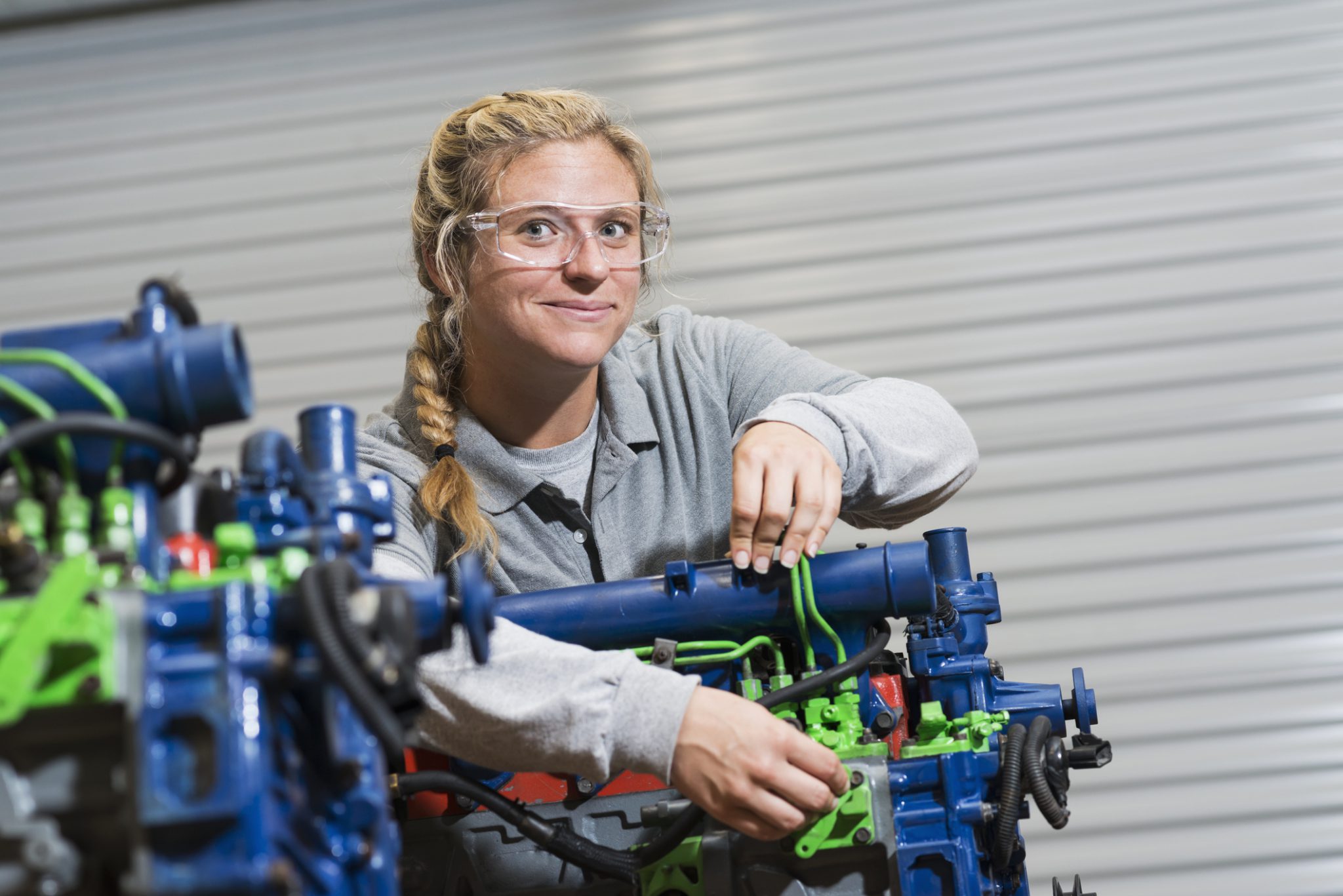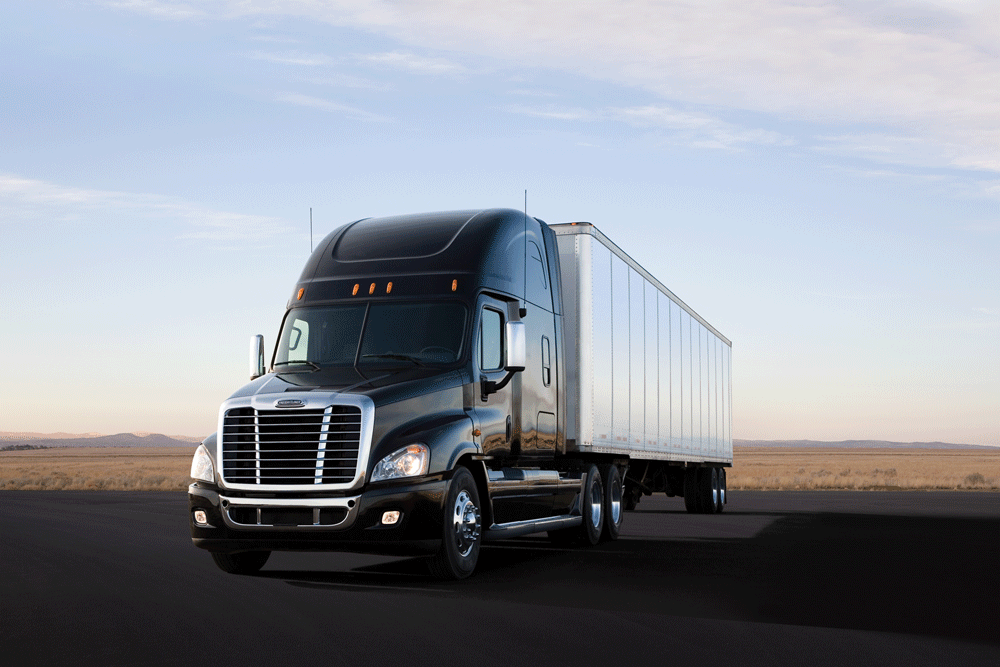
Will EVs Help Recruit Diesel Technicians?
Today, businesses are having difficulty filling positions within their organization; however, for our industry, this difficulty is one we’ve been facing for a very long time, especially when it comes to diesel technicians (as well as the ongoing driver shortage). And it’s not getting better any time soon. According to the Bureau of Labor Statistics, the commercial trucking industry will need to hire 28,000 technicians per year up to the year 2030. When you consider that demand for that profession nearly doubled between 2020 and 2021, you have to wonder whether that estimate is actually quite conservative.
In a recent IdeaXchange blog, I discussed the need to change the way we hire technicians. That blog cited Tim Spurlock, co-founder and CEO of American Diesel Training Centers, who noted that one of the things that needs to change is the interview process. It needs to be faster by speeding up the time between application and interview and provide the option of interviewing by phone and/or video rather than just in-person.
One of the biggest problems when it comes to recruitment is the perception of the job as one involving the wearing of grease-covered overalls, yet today’s tech toolbox is as likely to contain a laptop as it is a wrench. This can be really important at a time when many current diesel technicians are or will be aging out of the job, sooner rather than later. This reliance on technology can make a major difference when you’re trying to “sell” the job to generations (Millennials and Gen Z) that have grown up with a vision of software and technology jobs as the careers to pursue.
EVs may help attract a new generation of workers
To attract candidates who grew up with tweeting and texting and likely never even saw a pay phone, new technology can be quite effective as a recruitment draw. In fact, last year, a CCJ article noted that EV tech training is “all the rage.” The article quotes Mike Roeth, executive director at the North American Council for Freight Efficiency, who was enthusiastic about the younger generations’ view of this technology. “This is because it’s cool and technically advanced,” he said. “They see electric cars and are really excited about [electric] trucks. I expected this, but not to the higher level we are experiencing. This is quite exciting, and I personally see a broader pool of employees all over.” That statement is definitely music to any fleet maintenance manager’s ears.
That broader pool will likely include women, who right now make up only 9.4 percent of truck technicians (even though, overall, women make up 46.8 percent of the entire workforce. The CCJ article cites Professor John Frala, alt fuels training coordinator at Rio Hondo College in Whittier, CA, who noted that EVs are attracting more women into the training programs at the school. “The cool part about this is I’m getting more female involvement because it’s not a greasy, grimy job where they’re lifting heavy stuff. Now it’s all computer based.” Frala is getting so much interest, he’s pursuing having an all-female tech training academy.
Another factor in attracting younger workers to EVs is the ability to appeal to their concern for the environment and their desire to work in jobs that will “make a difference” in the world. The CCJ article also quotes Elizabeth Tarquinto, Marketing Manager at Ford Customer Service Division, “I think EV tech work may have a greater appeal to a non-traditional technician. With the technology involved, I see this opening up the door for more tech focused people – versus those who are mechanically inclined. Understanding computer and systems will be critical. Not sure I would expect a difference in gender, other than it may appeal to high-tech females as well as high-tech males.”
A truck is still a truck
I would be remiss if I spoke as though EVs are around the corner for our industry and good for every job specification. The job “diesel technician” is not going to suddenly change to “EV technician.” I did note above about the need for training in basic maintenance for existing diesel-powered trucks. Regular maintenance will continue to be needed on brakes, HVAC, suspension and other systems. Tires will still need to be tested and technicians will still be responsible for handling all of it. Plus, since total conversion to electric trucks is not likely for the foreseeable future, some experts think there may be a need for two teams in maintenance shops; one to handle specific EV issues and another to handle regular maintenance, along with maintenance and repairs on traditional trucks engines.
Electric trucks will rely on technicians who understand how to optimize battery charging; who know how to respond quickly and effectively to ongoing upgrades; and who know how to troubleshoot unforeseen issues that tend to pop up with any new technology. Some fleets may decide that two teams may be too much and look to outsource maintenance to a third party. What is clear is that if you are not thinking how your fleet will respond to this new technology, especially when it comes to maintenance, you are doing your company, and your maintenance team, a disservice.
If you have concerns about your fleet’s ability to attract technicians, maybe it’s time to look to outsource that function.

About Jane Clark
Jane Clark is Vice President of Member Services for NationaLease. Before joining the full service truck leasing organization, she served in executive positions with some of the nation’s top staffing and recruitment agencies.




